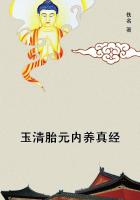IT was only in the last few years that the bishop had experienced these nervous and mental crises.He was a belated doubter.Whatever questionings had marked his intellectual adolescence had either been very slight or had been too adequately answered to leave any serious scars upon his convictions.
And even now he felt that he was afflicted physically rather than mentally, that some protective padding of nerve-sheath or brain-case had worn thin and weak, and left him a prey to strange disturbances, rather than that any new process of thought was eating into his mind.These doubts in his mind were still not really doubts; they were rather alien and, for the first time, uncontrolled movements of his intelligence.He had had a sheltered upbringing; he was the well-connected son of a comfortable rectory, the only son and sole survivor of a family of three; he had been carefully instructed and he had been a willing learner; it had been easy and natural to take many things for granted.It had been very easy and pleasant for him to take the world as he found it and God as he found Him.Indeed for all his years up to manhood he had been able to take life exactly as in his infancy he took his carefully warmed and prepared bottle --unquestioningly and beneficially.
And indeed that has been the way with most bishops since bishops began.
It is a busy continuous process that turns boys into bishops, and it will stand few jars or discords.The student of ecclesiastical biography will find that an early vocation has in every age been almost universal among them; few are there among these lives that do not display the incipient bishop from the tenderest years.Bishop How of Wakefield composed hymns before he was eleven, and Archbishop Benson when scarcely older possessed a little oratory in which he conducted services and--a pleasant touch of the more secular boy--which he protected from a too inquisitive sister by means of a booby trap.It is rare that those marked for episcopal dignities go so far into the outer world as Archbishop Lang of York, who began as a barrister.This early predestination has always been the common episcopal experience.Archbishop Benson's early attempts at religious services remind one both of St.Thomas a Becket, the "boy bishop," and those early ceremonies of St.Athanasius which were observed and inquired upon by the good bishop Alexander.(For though still a tender infant, St.Athanasius with perfect correctness and validity was baptizing a number of his innocent playmates, and the bishop who "had paused to contemplate the sports of the child remained to confirm the zeal of the missionary.") And as with the bishop of the past, so with the bishop of the future; the Rev.H.J.Campbell, in his story of his soul's pilgrimage, has given us a pleasant picture of himself as a child stealing out into the woods to build himself a little altar.
Such minds as these, settled as it were from the outset, are either incapable of real scepticism or become sceptical only after catastrophic changes.They understand the sceptical mind with difficulty, and their beliefs are regarded by the sceptical mind with incredulity.They have determined their forms of belief before their years of discretion, and once those forms are determined they are not very easily changed.Within the shell it has adopted the intelligence may be active and lively enough, may indeed be extraordinarily active and lively, but only within the shell.
There is an entire difference in the mental quality of those who are converts to a faith and those who are brought up in it.
The former know it from outside as well as from within.They know not only that it is, but also that it is not.The latter have a confidence in their creed that is one with their apprehension of sky or air or gravitation.It is a primary mental structure, and they not only do not doubt but they doubt the good faith of those who do.They think that the Atheist and Agnostic really believe but are impelled by a mysterious obstinacy to deny.So it had been with the Bishop of Princhester; not of cunning or design but in ****** good faith he had accepted all the inherited assurances of his native rectory, and held by Church, Crown, Empire, decorum, respectability, solvency--and compulsory Greek at the Little Go--as his father had done before him.If in his undergraduate days he had said a thing or two in the modern vein, affected the socialism of William Morris and learnt some Swinburne by heart, it was out of a conscious wildness.He did not wish to be a prig.He had taken a far more genuine interest in the artistry of ritual.
Through all the time of his incumbency of the church of the Holy Innocents, St.John's Wood, and of his career as the bishop suffragan of Pinner, he had never faltered from his profound confidence in those standards of his home.He had been kind, popular, and endlessly active.His undergraduate socialism had expanded simply and sincerely into a theory of administrative philanthropy.He knew the Webbs.He was as successful with working-class audiences as with fashionable congregations.His home life with Lady Ella (she was the daughter of the fifth Earl of Birkenholme) and his five little girls was ******, beautiful, and happy as few homes are in these days of confusion.Until he became Bishop of Princhester--he followed Hood, the first bishop, as the reign of his Majesty King Edward the Peacemaker drew to its close--no anticipation of his coming distress fell across his path.
(2)
He came to Princhester an innocent and trustful man.The home life at the old rectory of Otteringham was still his standard of truth and reality.London had not disillusioned him.It was a strange waste of people, it made him feel like a missionary in infidel parts, but it was a kindly waste.It was neither antagonistic nor malicious.He had always felt there that if he searched his Londoner to the bottom, he would find the completest recognition of the old rectory and all its data and implications.















